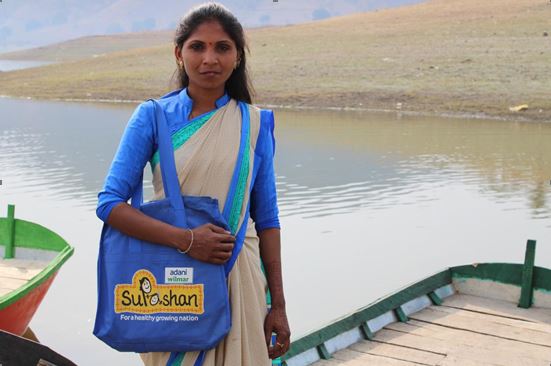Ahmedabad : Child marriage ends childhood. It negatively influences children’s rights to education, health and protection. These consequences impact not just the girl directly, but also her family and community. – Unicef
Amisha was 17 years old when she dropped out of school after she failed the SSC exam. She stayed at home and helped her mother with the household chores. Her father, a daily wage labourer, decided to marry her off as she hardly did anything and the family considered her a burden. The family was eager for her nuptials as the Vasava tribal community to which they belong prescribes the early marriage of girls.
A resident of Gadit village in Nandod block in Narmada district, Amisha was not ready for marriage at such a young age, despite her parents’ insistence. She shared her problem at a group meeting conducted in the village by SuPoshan Sangini Rekhaben Vasava.
Rekhaben visited Amisha’s home and met her parents. After listening to their views, she explained to them the importance of marrying at the right age. She told them how marriage at a young age affects the physical and mental health of young girls and boys. It impacts the health of girls and their offspring. She informed them that the Central government has proposed in the Parliament to increase the marriageable age of girls from 18 to 21, a step towards their empowerment. Rekhaben counselled her parents, Meenaben and Jesalbhai. After almost three months of counselling, they understood the implications Amisha could face if they married her early.
“We counsel the parents of both the girl and the boy and explain to them why it is not advisable to marry them so young. The girl’s body is not ready to bear a child. Second, it’s important that both complete their education, and the boy starts earning so that he can support his family,” says Sheetal Patel, district coordinator with Project Suposhan, Adani Foundation.
The Adani Foundation has been running this project for three years now, and Sheetal has been heading it for as many years. She and other Sanginis work relentlessly with the tribal communities in Narmada to bring awareness about nutrition and health. Child marriage is common among the scheduled tribes that constitute 89% of the population in Narmada district. Rekhaben and other Sanginis have been able to stop 21 such weddings in the last two years.
Amisha’s parents acknowledge Rekhaben’s efforts in making them understand and breaking the age-old bias against girls. They thank her for showing them how to treat their daughter well. Rekhaben helped Amisha, now 19 years old, to enrol in a beautician course at the Adani Skill Development Centre. Today, Amisha earns decent money and is happy to take care of her family’s needs. She is engaged and will get married once she is ready. Her fiancé, in the meanwhile, has started a job as a cleaner.

